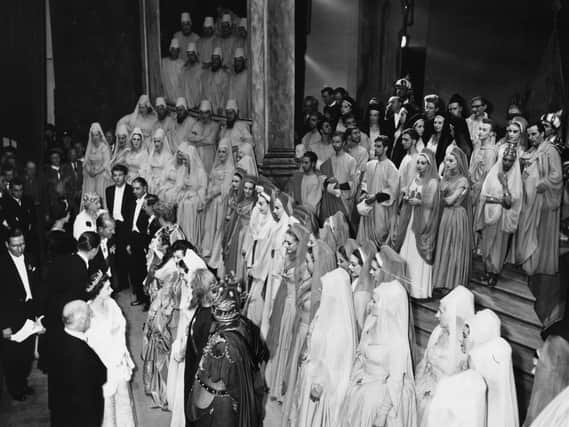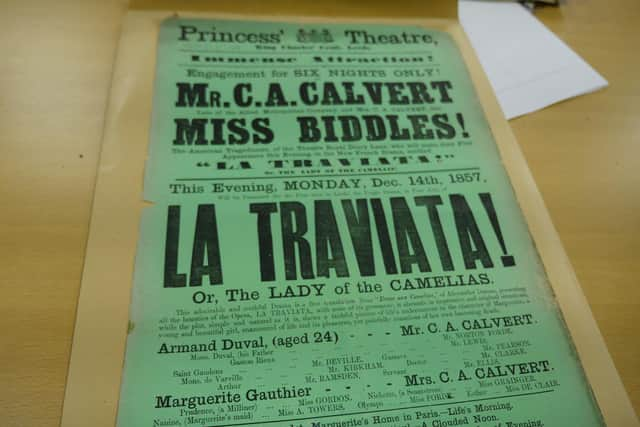New exhibition in Leeds explores nearly 300 years of opera in the city


The story of opera, though, doesn’t tend to get the same headline treatment. However, as a new exhibition shows, it has a back story that has helped shape cultural life in the city for hundreds of years.
The Leeds Opera Story is a website and the name of a week-long exhibition at the Corn Exchange that runs until next Monday, celebrating the hidden history of opera in the city which stretches back nearly 300 years.
Advertisement
Hide AdAdvertisement
Hide AdThe exhibition, organised by Leeds Opera Festival, starts with the first operas to have been performed in Leeds back in the 18th century, and looks at the singers, conductors and companies that first brought opera to Leeds, how tastes in opera have changed over time, and the theatres that first hosted performances.


The free to attend exhibition includes a self-guided audio tour of forgotten theatres across the city, which once housed some of the greatest performances.
David Ward, artistic director of Leeds Opera Festival, says the idea behind it was to find out more about the city’s operatic heritage. “Opera has tended to be very London-focused. It was all about its theatres and the people who performed there, and no one really talked about what was happening outside London until Opera North started in 1978.”
It turns out that Leeds’s opera story has deep roots. The first opera performed in the city was The Beggar’s Wedding way back in 1729, and until the late 1840 there was only one theatre in Leeds (imaginatively named The Theatre) where English ballad operas were the order of the day.
Advertisement
Hide AdAdvertisement
Hide Ad“An evening’s entertainment would include a play, a dance and an opera and you had all sorts of people in the audience,” says Ward.
“For about a 100 years there was almost exclusively English Opera in Leeds. There were some operas by Mozart and Rossini but they were done in mangled English for the tastes of English audiences.”
He adds: “People often think of opera as big and expensive but for more than a 100 years there were small operas that told relatable stories. It shows that opera doesn’t have to be big, or Italian. It can be four people and a piano doing a bit of comedy.”
It wasn’t until 1832 with The Barber of Seville that Leeds witnessed its first opera in a different language.
Advertisement
Hide AdAdvertisement
Hide AdAnd it was later, during the second half of the 19th century, when theatre and what we would recognise today as opera, really took off.
The city’s wealth grew as it became an industrial powerhouse and with this new-found status imposing venues like the Grand and the Empire became the heart of cultural life.
In 1890, Leeds Amateur Operatic Society, the city’s oldest amateur company, performed for the first time with a production of HMS Pinafore.
However, the first staging in the city of Wagner’s Ring Cycle, some 21 years later and which included a chorus of more than 100 people, was a more significant milestone. “That was a big moment because it showed that Leeds is a proper opera city,” says Ward.
Advertisement
Hide AdAdvertisement
Hide Ad“Leeds has an amazing operatic heritage going all the way back to 1729. Delving into the forgotten operas, artists and theatres that have contributed to this heritage has been fascinating.
“It really tells the story not only of how opera has changed over the past 300 years, but of how the city has changed as well.”
The Leeds Opera Story runs at the Corn Exchange, until August 30. For more information go to http://www.leedsoperastory.co.uk